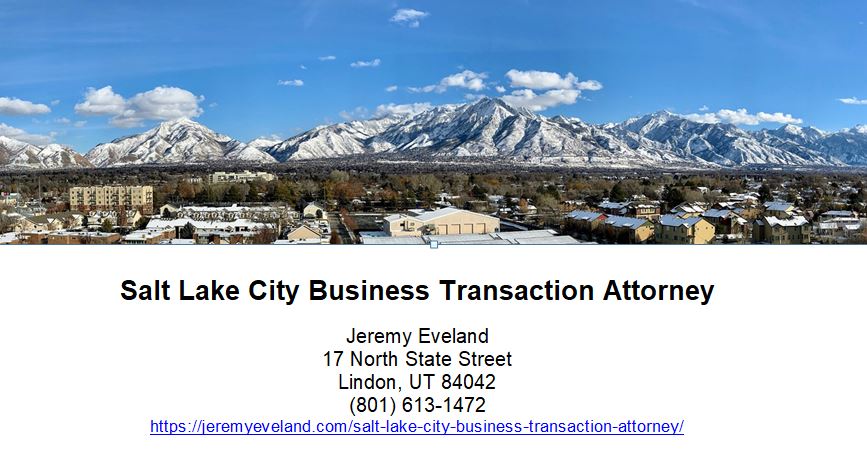-
Attorney at Law
- Introduction
- What Are the Most Common Pitfalls of Selling a Company?
- What Are the Tax Implications of Selling Your Company?
- What Are the Benefits of Selling Your Company?
- What Are the Different Types of Sale of Company Agreements?
- The Step-by-Step Process of Selling a Company
- What to Consider When Selling Your Company: A Guide for Business Owners
- How to Find the Right Lawyer for Your Sale of Company Transaction
- Q&A
“Selling Your Company? Let Us Help You Make the Right Move!”
Introduction
The sale of a company is a complex process that requires careful consideration and planning. It involves a variety of legal, financial, and operational considerations. It is important to understand the process and the implications of a sale before making any decisions. This article will provide an overview of the sale of a company, including the different types of sales, the steps involved, and the potential benefits and risks associated with a sale. It will also discuss the importance of having a qualified team of advisors to help guide the process.
What Are the Most Common Pitfalls of Selling a Company?
When selling a company, there are several common pitfalls to be aware of. First, it is important to ensure that the company is properly valued. This can be difficult to do, as the value of a company is based on a variety of factors, including its assets, liabilities, and potential for future growth. It is also important to ensure that the company is in good financial health, as buyers will be looking for a profitable business.
Second, it is important to ensure that all legal and regulatory requirements are met. This includes ensuring that all necessary paperwork is filed and that all taxes are paid. It is also important to ensure that all contracts and agreements are in place and that any potential liabilities are addressed.
Third, it is important to ensure that the sale process is conducted in a professional manner. This includes ensuring that all parties involved are aware of the terms of the sale and that all negotiations are conducted in a timely manner. It is also important to ensure that all parties are aware of their rights and obligations under the sale agreement.
Finally, it is important to ensure that the sale is conducted in a transparent manner. This includes providing potential buyers with all the necessary information about the company, including financial statements, customer lists, and other relevant documents. It is also important to ensure that all parties involved are aware of the terms of the sale and that all negotiations are conducted in a timely manner.
What Are the Tax Implications of Selling Your Company?
When selling a company, the tax implications can be significant. It is important to understand the tax implications of selling a company before entering into any transaction.
The primary tax implication of selling a company is capital gains tax. Capital gains tax is the tax imposed on the profits from the sale of a capital asset, such as a business. The amount of capital gains tax owed will depend on the type of asset sold, the amount of profit made, and the length of time the asset was held.
In addition to capital gains tax, the seller may also be subject to income tax on any profits made from the sale. The amount of income tax owed will depend on the seller’s individual tax rate.
The seller may also be subject to state and local taxes, depending on the jurisdiction in which the sale takes place. These taxes may include sales tax, transfer taxes, and other taxes.
Finally, the seller may be subject to estate taxes if the company is owned by an individual or a trust. Estate taxes are imposed on the transfer of assets from one generation to the next.
It is important to consult with a qualified tax professional to understand the full tax implications of selling a company. A tax professional can help the seller understand the tax implications of the sale and develop a plan to minimize the tax burden.
What Are the Benefits of Selling Your Company?
Selling your company can be a difficult decision, but it can also be a beneficial one. There are a variety of advantages to selling your business, including financial gain, the ability to pursue other interests, and the potential to create a legacy.
Financial Gain
One of the primary benefits of selling your company is the potential for financial gain. Depending on the size and success of your business, you may be able to receive a large sum of money for the sale. This money can be used to pay off debts, invest in other ventures, or simply enjoy the fruits of your labor.
Pursue Other Interests
Selling your company can also provide you with the opportunity to pursue other interests. If you have been running your business for a long time, you may be ready to move on to something new. Selling your company can free up your time and resources to focus on other projects or passions.
Create a Legacy
Finally, selling your company can be a way to create a legacy. If you have built a successful business, you may want to ensure that it continues to thrive after you are gone. Selling your company to the right buyer can ensure that your legacy lives on.
In conclusion, selling your company can be a difficult decision, but it can also be a beneficial one. There are a variety of advantages to selling your business, including financial gain, the ability to pursue other interests, and the potential to create a legacy.
What Are the Different Types of Sale of Company Agreements?
There are several types of sale of company agreements that can be used when selling a business. These include:
1. Asset Purchase Agreement: This agreement is used when the buyer is only interested in purchasing certain assets of the company, such as equipment, inventory, or intellectual property. The seller retains ownership of the company and the buyer pays for the assets they are purchasing.
2. Stock Purchase Agreement: This agreement is used when the buyer is interested in purchasing the entire company, including all of its assets and liabilities. The buyer pays for the company’s stock and becomes the new owner.
3. Merger Agreement: This agreement is used when two companies merge together to form a new entity. The two companies combine their assets and liabilities and the new entity is owned by both parties.
4. Joint Venture Agreement: This agreement is used when two companies join forces to pursue a common goal. The two companies share ownership of the venture and both parties are responsible for the venture’s success.
5. Licensing Agreement: This agreement is used when a company grants another company the right to use its intellectual property, such as patents, trademarks, or copyrights. The licensee pays the licensor a fee for the right to use the intellectual property.
No matter which type of sale of company agreement is used, it is important to ensure that all parties involved are aware of their rights and obligations under the agreement. It is also important to have the agreement reviewed by a qualified attorney to ensure that it is legally binding and enforceable.
The Step-by-Step Process of Selling a Company
Selling a company is a complex process that requires careful planning and execution. The following steps provide a general overview of the process and should be tailored to the specific needs of the company and its owners.
1. Prepare the Company for Sale: Before putting a company up for sale, it is important to ensure that it is in the best possible condition. This includes reviewing financial statements, assessing the value of assets, and making any necessary improvements to the business operations.
2. Determine the Sale Price: Once the company is ready to be sold, the next step is to determine the sale price. This should be based on a thorough analysis of the company’s financials, assets, and market conditions.
3. Find a Buyer: Once the sale price has been determined, the next step is to find a buyer. This can be done through a variety of methods, including advertising, networking, and working with a business broker.
4. Negotiate the Sale: Once a buyer has been identified, the next step is to negotiate the sale. This includes discussing the terms of the sale, such as the purchase price, payment terms, and any contingencies.
5. Finalize the Sale: Once the negotiations are complete, the next step is to finalize the sale. This includes signing the purchase agreement, transferring ownership of the company, and completing any other necessary paperwork.
6. Close the Sale: The final step in the process is to close the sale. This includes transferring funds, transferring assets, and ensuring that all necessary paperwork is completed.
Selling a company is a complex process that requires careful planning and execution. By following these steps, owners can ensure that the sale process is successful and that they receive the best possible outcome.
What to Consider When Selling Your Company: A Guide for Business Owners
As a business owner, selling your company can be a difficult and complex process. It is important to consider all aspects of the sale before making a decision. This guide will provide you with information on what to consider when selling your company.
1. Timing: When is the best time to sell your company? Consider the current market conditions, the state of your business, and the potential buyers. You may want to wait until the market is more favorable or until your business is in a better position.
2. Valuation: How much is your company worth? Consider the value of your assets, the potential for future growth, and the current market conditions. You may want to hire a professional to help you determine the value of your company.
3. Buyers: Who are the potential buyers? Consider the type of buyer that would be interested in your company, such as a strategic buyer or a financial buyer. You may want to hire a broker to help you find potential buyers.
4. Negotiations: How will you negotiate the sale? Consider the terms of the sale, such as the purchase price, payment terms, and any contingencies. You may want to hire a lawyer to help you negotiate the sale.
5. Tax Implications: What are the tax implications of selling your company? Consider the capital gains tax, the depreciation recapture tax, and any other taxes that may apply. You may want to hire a tax professional to help you understand the tax implications of the sale.
Selling your company can be a complex process. It is important to consider all aspects of the sale before making a decision. This guide has provided you with information on what to consider when selling your company.
How to Find the Right Lawyer for Your Sale of Company Transaction
When it comes to selling a company, it is important to find the right lawyer to ensure the transaction is handled properly. The right lawyer can help you navigate the complexities of the sale process and ensure that all legal requirements are met. Here are some tips for finding the right lawyer for your sale of company transaction:
1. Research: Start by researching lawyers who specialize in corporate transactions. Look for lawyers who have experience in the type of sale you are considering. Ask for referrals from other business owners or contacts in the industry.
2. Interview: Once you have identified a few potential lawyers, arrange for an initial consultation. Ask questions about their experience and qualifications, and discuss the specifics of your sale. Make sure you feel comfortable with the lawyer and that they understand your goals.
3. Fees: Ask about the lawyer’s fees and payment terms. Make sure you understand what services are included in the fee and what additional costs may be incurred.
4. References: Ask for references from past clients. Contact the references to get an idea of the lawyer’s work ethic and how they handled the sale process.
5. Negotiate: Negotiate the terms of the agreement with the lawyer. Make sure you understand the terms and that they are in line with your expectations.
Finding the right lawyer for your sale of company transaction is essential to ensure the process is handled properly. Take the time to research, interview, and negotiate with potential lawyers to find the best fit for your needs.
Q&A
1. What is the process for selling a company?
The process for selling a company typically involves the following steps: (1) assessing the company’s value; (2) preparing the company for sale; (3) marketing the company to potential buyers; (4) negotiating the terms of the sale; (5) due diligence; (6) closing the sale; and (7) post-closing activities.
2. What is the difference between a stock sale and an asset sale?
In a stock sale, the buyer purchases the stock of the company, which includes all of the company’s assets and liabilities. In an asset sale, the buyer purchases only certain assets of the company, such as real estate, equipment, or intellectual property.
3. What are the tax implications of selling a company?
The tax implications of selling a company depend on the type of sale and the structure of the transaction. Generally, the seller may be subject to capital gains taxes on the sale of the company’s assets or stock.
4. What is the role of an investment banker in a sale of a company?
An investment banker typically assists the seller in preparing the company for sale, marketing the company to potential buyers, and negotiating the terms of the sale.
5. What is due diligence?
Due diligence is the process of verifying the accuracy of the information provided by the seller and assessing the value of the company. It typically includes reviewing financial statements, contracts, and other documents related to the company.
6. What is a non-disclosure agreement?
A non-disclosure agreement (NDA) is a legally binding contract between the seller and potential buyers that prohibits the buyers from disclosing confidential information about the company.
7. What is a letter of intent?
A letter of intent (LOI) is a document that outlines the terms and conditions of a proposed transaction. It is typically used to initiate negotiations between the buyer and seller and is not legally binding.
Areas We Serve
We serve individuals and businesses in the following locations:
Salt Lake City Utah
West Valley City Utah
Provo Utah
West Jordan Utah
Orem Utah
Sandy Utah
Ogden Utah
St. George Utah
Layton Utah
South Jordan Utah
Lehi Utah
Millcreek Utah
Taylorsville Utah
Logan Utah
Murray Utah
Draper Utah
Bountiful Utah
Riverton Utah
Herriman Utah
Spanish Fork Utah
Roy Utah
Pleasant Grove Utah
Kearns Utah
Tooele Utah
Cottonwood Heights Utah
Midvale Utah
Springville Utah
Eagle Mountain Utah
Cedar City Utah
Kaysville Utah
Clearfield Utah
Holladay Utah
American Fork Utah
Syracuse Utah
Saratoga Springs Utah
Magna Utah
Washington Utah
South Salt Lake Utah
Farmington Utah
Clinton Utah
North Salt Lake Utah
Payson Utah
North Ogden Utah
Brigham City Utah
Highland Utah
Centerville Utah
Hurricane Utah
South Ogden Utah
Heber Utah
West Haven Utah
Bluffdale Utah
Santaquin Utah
Smithfield Utah
Woods Cross Utah
Grantsville Utah
Lindon Utah
North Logan Utah
West Point Utah
Vernal Utah
Alpine Utah
Cedar Hills Utah
Pleasant View Utah
Mapleton Utah
Stansbury Par Utah
Washington Terrace Utah
Riverdale Utah
Hooper Utah
Tremonton Utah
Ivins Utah
Park City Utah
Price Utah
Hyrum Utah
Summit Park Utah
Salem Utah
Richfield Utah
Santa Clara Utah
Providence Utah
South Weber Utah
Vineyard Utah
Ephraim Utah
Roosevelt Utah
Farr West Utah
Plain City Utah
Nibley Utah
Enoch Utah
Harrisville Utah
Snyderville Utah
Fruit Heights Utah
Nephi Utah
White City Utah
West Bountiful Utah
Sunset Utah
Moab Utah
Midway Utah
Perry Utah
Kanab Utah
Hyde Park Utah
Silver Summit Utah
La Verkin Utah
Morgan Utah
Sale of Company Consultation
When you need help with a sale of company call Jeremy D. Eveland, MBA, JD (801) 613-1472 for a consultation.
Jeremy Eveland
17 North State Street
Lindon UT 84042
(801) 613-1472
Related Posts
Business Acquisition Lawyer Sandy Utah
Estate Planning Lawyer Orem Utah
Legal Requirements To Form A Trust
Charitable Estate Planning Trusts
Estate Planning Lawyer Sandy Utah
Using Disclaimers In Estate Planning






























